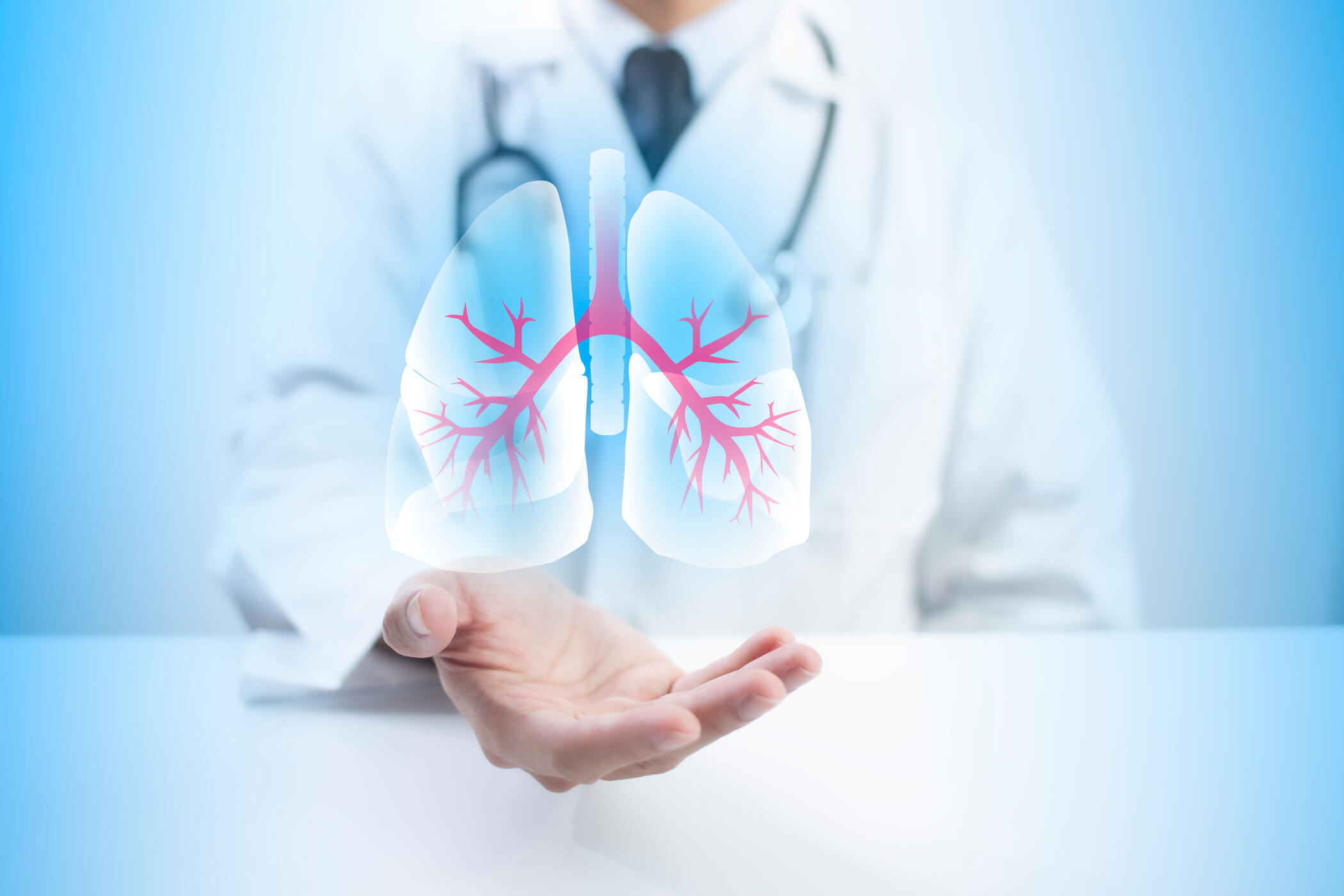Diagnosis and Treatment of Lung Disease
The health of your lungs and respiratory tract is crucial to your overall health. That's why it's so important to detect lung disease early and get the proper treatment. According to the American Lung Association, more than 34 million Americans are living with chronic lung disease such as asthma, chronic obstructive pulmonary disease (COPD), emphysema and chronic bronchitis.
Temecula Valley Hospital has physicians who specialize in the diagnosis, treatment and prevention of lung and respiratory diseases. We provide advanced care for a wide range of conditions, including:
- Asthma
- Bronchitis
- COPD
- Emphysema and A1AD-related emphysema
- Influenza
- Lung cancer
- Interstitial lung disease
- Pneumonia
- Sarcoidosis
- Tuberculosis
 Lung Cancer Assessment
Lung Cancer Assessment
Yearly testing helps find lung cancer early. Complete this assessment to find out if screening for lung cancer may be recommended for you.
Find a doctor
If you need a referral to a pulmonologist at Temecula Valley Hospital, call our free referral service at 855-859-5203 or search for a physician online.
Nationally recognized for lung care
Temecula Valley Hospital has been named by U.S. News & World Report to its 2023-2024 Best Hospitals as a High Performing hospital for Pneumonia and COPD.
Pulmonary diagnostic and therapeutic procedures
Temecula Valley Hospital offers a variety of cardiopulmonary tests to help detect lung disease. They include:
Therapeutic and diagnostic bronchoscopies
Bronchoscopies enable doctors to look at your lungs and air passages. This helps them determine the cause of symptoms such as trouble breathing.
- Endobronchial ultrasound (EBUS)
- Navigational
- Photodynamic therapy
- Foreign body removal, biopsy, and lavage
 Ion Robotic-assisted Bronchoscopy Platform
Ion Robotic-assisted Bronchoscopy Platform
Temecula Valley Hospital is the first hospital in Southwest Riverside County to offer life-enhancing lung care technology with the minimally invasive Ion robotic-assisted bronchoscopy platform by Intuitive. This technology helps improve the ability of surgeons to detect, biopsy, diagnose and treat lung cancers at an earlier stage.
Arterial blood gas test
This test measures the amount of oxygen and carbon dioxide in your blood. This shows how well your lungs absorb oxygen and remove carbon dioxide.
Pulmonary function testing
This is a series of tests that helps doctors determine how well your lungs are functioning.
Respiratory Therapy Treatments
Once your condition is diagnosed, we can provide the following cardiopulmonary treatments:
- Bronchodilator therapy – A medication normally available as an inhaler or nebulizer that helps expand the airway and remove mucus from your lungs.
- Lung inflation therapy – Normally used after surgery to help patients expand their lungs to prevent complications.
- Pulmonary hygiene – A series of exercises aimed at helping patients clear their airway of mucus and other secretions.
- Ventilation management (invasive and non-invasive) – Using a mechanical ventilator to help patients receive the proper amount of oxygen.
Respiratory therapists
Respiratory therapists work closely with your doctor to diagnose, manage and monitor your condition. They can perform tests, give patients oxygen, manage ventilators, give medications, and draw blood for tests. They also educate patients on how to prevent symptoms from recurring, how to follow their treatment plan, and knowing when to call their doctor.
Early detection of lung cancer
Lung cancer is the leading cause of cancer death in the U.S., accounting for about one in five of all cancer deaths, according to the American Cancer Society. Each year more people die of lung cancer than of colon, breast, and prostate cancers combined.
Lung cancer is often diagnosed in its later stages when it is most difficult to treat and treatment options are limited. That is one reason for the low survival rate. Improving your chance of survival requires early detection. Having a low-dose-radiation computerized tomography scan may improve your survival rate through earlier detection, accurate diagnosis, accurate localization and curative therapy.
